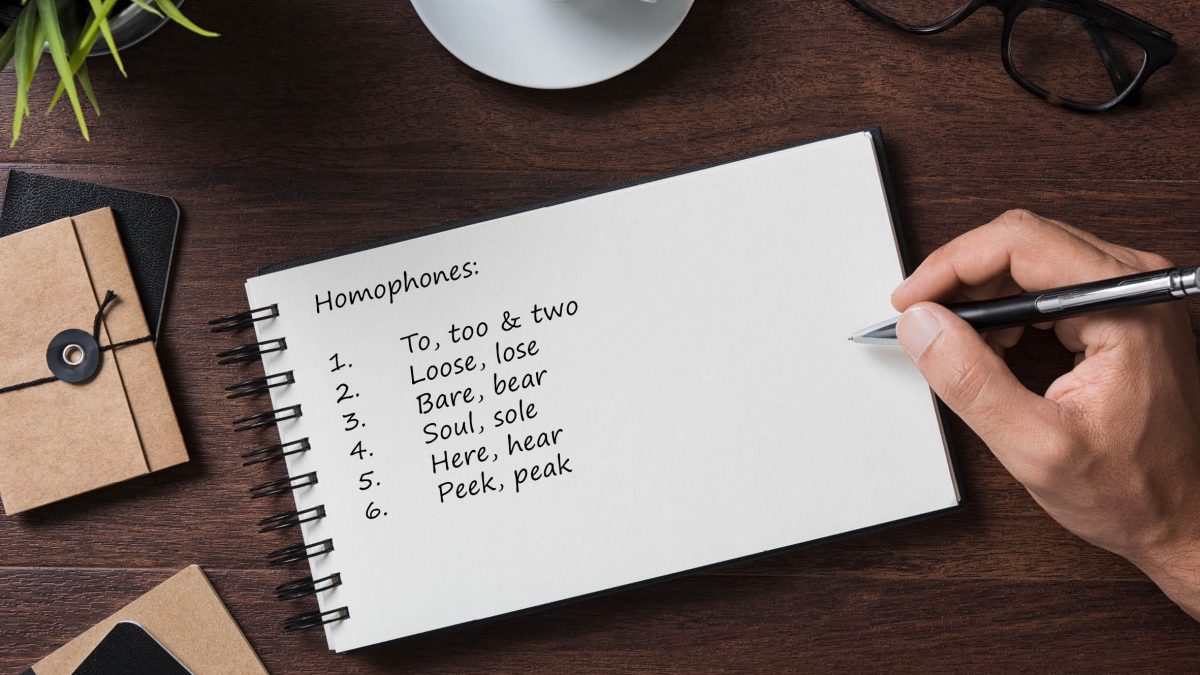More homophones!
Judging by the response to my last blog about ‘there, their and they’re’, words that sound the same but have different meanings is a hot topic for everyone and well worth another blog post! So, here are some more homophones, starting with ‘to, too and two’:
To
To denotes movement and refers to a place, direction or position. For example:
- I am going to the Post Office
- Shall I come around to yours later?
Or, to can be placed before a verb for the infinitive:
- You don’t need to buy more cereal this week
- We are going to walk to school this morning
Too
Too means also or denotes excess. A good tip to remember is if you could replace it with also, then it is too you need:
- Shall you bring your dog too?
- Do you want an ice cream too?
Or to denote excess:
- I ate too much for lunch!
- I love these shoes but they are too big
Two
However, two is the written way of denoting 2. Simple as that. If you can replace it in a sentence with a numerical 2, then it is two that you need:
- We had to wait two hours for our flight
- Shall we meet at two?
- There are only enough seats left for two of you
To, too, two test
In addition to my tips above, here are a few examples to practise on. You will find the answers at the end of this blog.
- I need to book a taxi __ take me __ the airport.
- Normal office hours are 9 __ 5.
- That dress is far ___ big for you!
- ___ many people replied to the job advert.
- I need __ watch that film you recommended
- The ceremony starts at ___, then transport is provided __ the reception.
Even more homophones!
There are hundreds of homophones in the English language, here are just a few examples:
- Soul, sole
- Meet, meat
- Bear, bare
- Due, dew
- Need, knead
- Sew, sow
- Feet, feat
- Made, maid
- Here, hear
- Peek, peak
In addition, one that I have noticed quite a few times recently – especially on social media – is loose, lose:
Loose
Loose is an adjective meaning not tight, fixed or fastened and is therefore used in a descriptive way, for example:
- Since I have stopped snacking, my clothes are loose
- The fault was caused by a loose screw that needed tightening
Loose can also be taken from the verb to loosen and means to release, to make free, to untie:
- The horses are loose and could get on to the road
- The RSPCA rescued three dogs running loose in our street today
Lose
Lose is a verb and its meaning is to be without something, or the opposite of to win, for instance:
- Why do I always lose one sock in the wash?
- I was sure they were going to lose that last game
- You lose pens all the time, here’s mine
A good way of distinguishing between loose and lose is to try a bit of word association. For example, when you write loose, think of ‘not tight’, and when you write lose, think of it in the past tense,’ lost’. This will help to keep you on track.
Loose, lose test
Here are a few example to practise on. You will find the answers at the end of this blog:
- We have to play to win. We cannot afford to ____ this match today.
- I am wearing _____ clothes today because it is hot.
- I knew that if I didn’t put them in the usual place, I would ____ my car keys.
- There are some _____ sheep on the road.
- Just tie a _____ knot, otherwise we won’t be able to undo it.
Quiz answers
How did you find my quizzes? Were my tips useful in reaching your answers? Here are the correct answers for to, too and two:
- I need to book a taxi to take me to the airport.
- Normal office hours are 9 to 5.
- That dress is far too big for you!
- Too many people replied to the job advert.
- I need to watch that film you recommended
- The ceremony starts at two, then transport is provided to the reception
Here are the correct answers for loose and lose:
- We have to play to win. We cannot afford to lose this match today.
- I am wearing loose clothes today because it is hot.
- I knew that if I didn’t put them in the usual place, I would lose my car keys.
- There are some loose sheep on the road.
- Just tie a loose knot, otherwise we won’t be able to undo it.
Click here to read my previous blog about ‘there, their and they’re’.
If you find homophones interesting (or confusing), BBC Bitesize has an interactive quiz and some useful tips.

